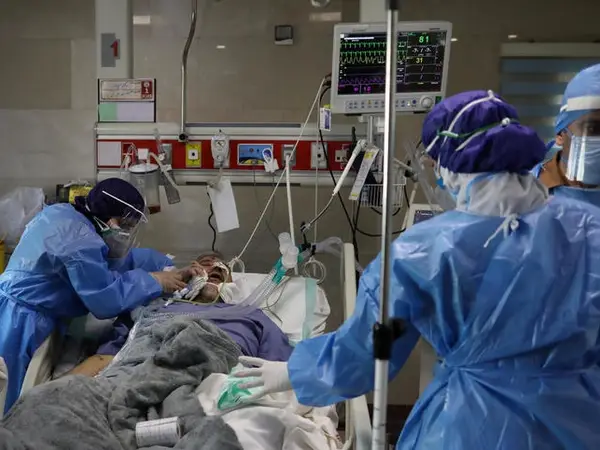Iran's health ministry has declared a hospital emergency as the Omicron variant of Covid-19 grips the country. Nearly 80 Iranian cities are deemed "red zones.”
After a few weeks of relative calm, only 11 cities still show ‘blue’ on the Covid map, with Tehran among the ‘red’ cities and 180 cities categorized as "orange.”
Health authorities, who have said the country is in a sixth wave of the pandemic, expect infections to rise to “up to” 400,000 daily cases with three-digit daily death figures. The health ministry said Thursday that numbers in hospital had increased by 64 percent in a week to over 18,000.
On Saturday parliament's open sessions and committee meetings were cancelled as 47 of 290 lawmakers as well as 30 staff members had tested positive for Covid.
A member of the Scientific Committee of the national Covid taskforce, Hamidreza Abtahi, told the Iranian Labour News Agency (ILNA) Friday that Omicron was spreading faster than expected.
Abtahi expressed concern over plans to re-open schools and to hold gatherings during the ten-day Fajr period that ends on the anniversary of the 1979 Revolution on February 11. He cited the Fajr film and theater festivals, as well as Etekaf (from the Arabic for ‘adhering to’) ceremonies, scheduled this year for February 15-18, during which large numbers pray in mosques throughout day and night. The government has yet to announce restrictions on any of these activities.
Infections rose to over 37,000 Thursday, with 2,000 of those hospitalized. The death toll from Covid was reported at 61 for the 24-hour period ending Thursday noon.
Abtahi said cases requiring hospitalization had not increased at the same pace as under earlier Covid waves. An official of Zanjan Medical Sciences University, Mashoud Taghilou, told Tasnim news agency Friday that while infections in Zanjan province had jumped 20-fold in ten days, the numbers hospitalized had tripled and the numbers requiring intensive care doubled.
Iran has reported 6.48 million cases and over 132,600 deaths, since it became the second country in the world to declare an epidemic in February 2020. Critics accuse the government of underreporting Covid cases and deaths, although Iran has reported the highest number of deaths than all the other countries in the region and the second highest number of infections.
With around 66 percent of people vaccinated, Iran has reported 6.5 million cases compared to 12 million in Turkey with 85 percent vaccinated, 433,000 in Egypt, which has vaccinated 27 percent and has a larger population. The United Arab Emirates has vaccinated 96 percent and Iraq just 16 percent.
According to official figures so far over 60 million Iranians have received one dose, 54 million have had two doses, and 18 million have also had a booster.
Abtahi said authorities were concerned over the number of children with the virus, with most children not vaccinated and intensive care facilities in children's hospitals were limited. The committee, he said, had urged the authorities to vaccinate children between five and twelve urgently.
The World Bank in January approved a $90 million loan to help Iran manage the pandemic. "This funding will not go to the Iranian budget and all loan proceeds, as well as procurement and disbursements, are being managed by the World Health Organization,” a World Bank Spokesman told the AFP news agency.
